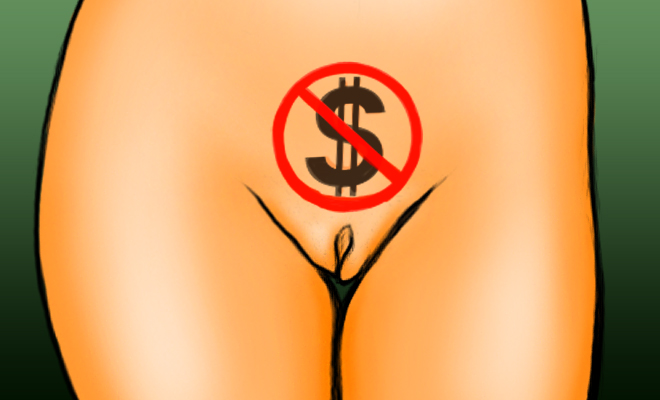
Many programs advertise to be faithful to their affiliates and not skim sales or percentages by utilizing transparent scripts for advanced tracking like NATS, etc. In many cases they do a pretty good job making sure your sales are properly credited, but there are black sheep around who try to save on expenses or steal a buck here and there. I am trying to make a small list of potential dangers to look out for. I am not saying programs are evil in general, but a certain percentage is secretly using lube to get into your backdoor. Here’s a small list of potential affiliate shaving methods.
Shady Fraudsters
This is one of the worst kind of plain out fraudulent sponsors. Typically, they will open two identical websites with different billing accounts (sometimes with same billing companies). Webmasters sign up at account one and send traffic using a third party billing company. For awhile everything will work fine, but after a couple of days, weeks or months program will switch or redirect traffic to a second account at the same biller or to a different billing company utilizing a similar domain such as it happened with Asian Streetmeat as documented in a GFY post. Since customers fees are paid into another account, affiliates will not be credited. In some instances traffic is redirected partially using geo-redirects or random skimming scripts to disguise such disgraceful practice. Other fraudsters use different sub-accounts at the same biller to avoid affiliate payouts. It takes effort to investigate and find such instances of questionable mannerism.
Manipulators
This just happened to me a few days ago: a sponsor noticed I was sending a small amounts of joins, but they would rebill for 10 months in average, some subscribers would even rebill for over 50 months. Sponsor went into his CCBill merchant admin and cut rebill payouts from unlimited rebills to 5. I think I should have received an email about this, but could not find anything in my email archives, but I remember receiving similar notices from other sponsors before. Well, guess what: I am considering kissing this sponsor ‘Good Bye’ since other competing affiliates have not been hit like me – unless they make up for it and pay me out.
Lazy Sponsors
Of course as time goes by programs will undergo changes. Some of those changes include account switches (see above), sub-account grouping (for CCBill sponsors) or introduction of new scripts like NATS or MPA4. Many programs will make you believe you do need to change all link codes and old links will cease working. In many cases this is totally wrong. With a little effort from their side, redirects could be created to assure webmaster payouts, but some guys are avoiding this to receive free traffic from old links.
Geo/Mobile Redirects
A nifty server file called .htaccess allows redirecting traffic by criteria like geo-location, browser parameters and other options. Sites might use this to send some of traffic to other sponsors. Some have legit reasons like protecting privacy of models in countries where porn is illegal like China or fraudulent carding activity like Vietnam. However, some do redirect poorly converting countries to third parties where they receive commissions as affiliates and you receive nothing. Check your sponsors by utilizing proxies from different countries for abnormal activities. Don’t care about third world countries like Philippines or Nigeria, but if they do redirect traffic from high income countries like the Emirates, Scandinavia, Argentina or Brazil you should be alarmed and may ask about it.
Time Out
Shit happens: billing forms can be down and programs will need to use an alternative biller to catch signups. Good sponsors will offer a one time payment to compensate for losses during extensive down times and add a bonus. If they don’t, they are bad business. Chances are they did this on purpose to avoid paying you.
Payout Increases
One of the most frequent shaving method is to cut out smaller affiliates from payments by increasing minimum payouts. Once an affiliate reaches 50 bucks payout limit he is confronted with a new minimum of 100 Dollars. Similar shaving tactics are diminishing payout methods and increasing fees. In the worst case they will just change your password and not reply to support requests – hence avoiding any payout to you. The boards are full of complaints about such shady sponsors like JP 18 Cash or Cyberage. Hard to prove they owe you anything. This happens more often ever since Epassporte went out of business and Paxum closed accounts for American porn bloggers.
Conclusion: You need to make test purchases
As you can see: programs have plenty of small tricks at hand to save on marketing expenses without actually shaving. Working with trusted third party billers like CCBill does decrease ways of shaving, but it does not protect, entirely. Most frequently used methods include .htaccess file manipulation to redirect traffic. It’s best to monitor sponsors from time to time and make test purchases with different cards. Get a Visa or Mastercard gift card from your bank and ask your friends to get the same in order to make test purchases. You might be amazed to observe strange movements on your card (i.e. x-sales you never agreed on) and missing commissions from time to time. Don’t use a real debit or credit card! In case a sponsor will knock you up with hidden X-sales you might need to go through a lot of trouble and give up your CC. A 100$ gift card will protect you from excessive charges to the amount of stored value.
Possibly, there are other ways of shaving. Feel free to post a comment if you know of other methods, but refrain from name calling and finger pointing, please.


